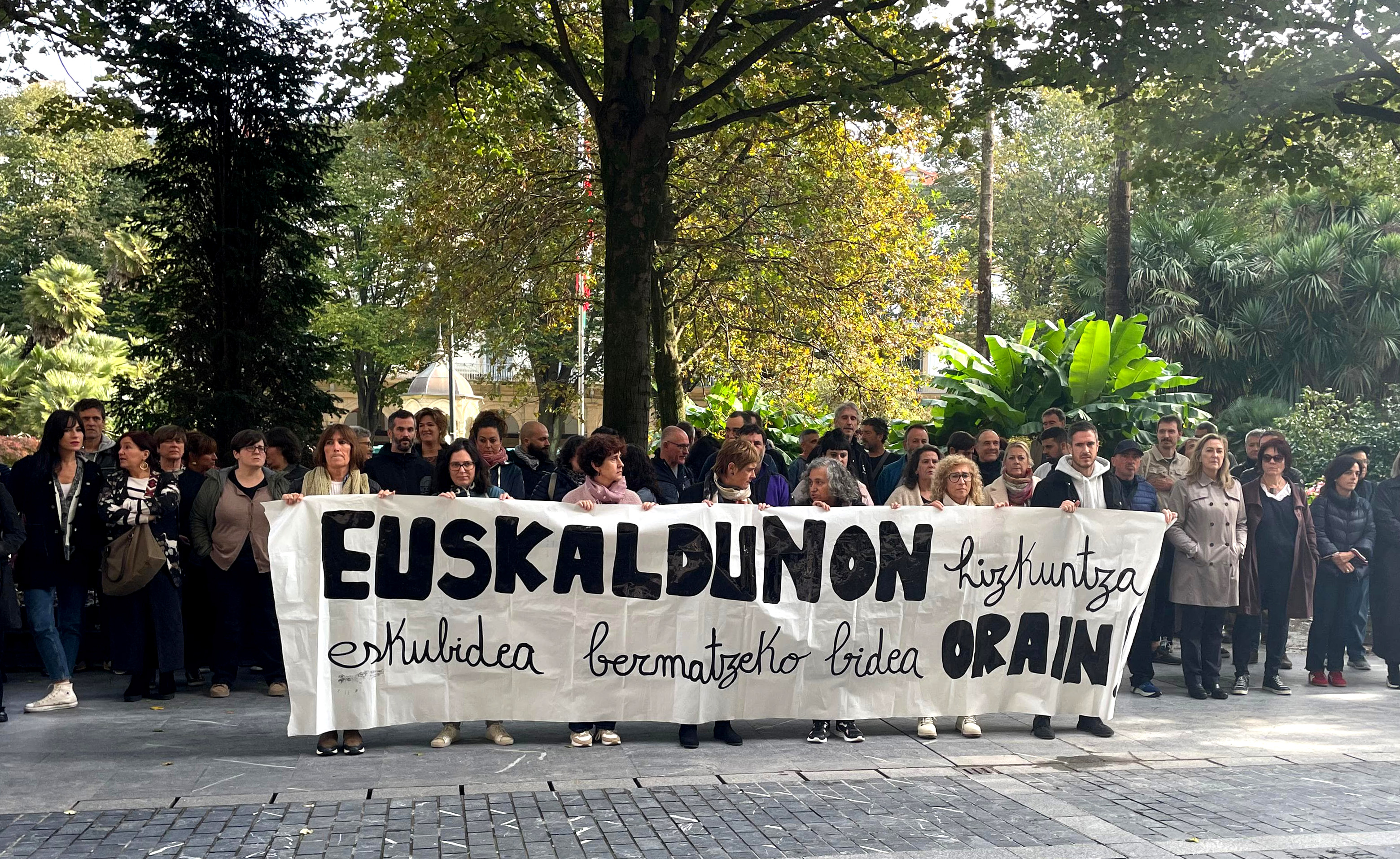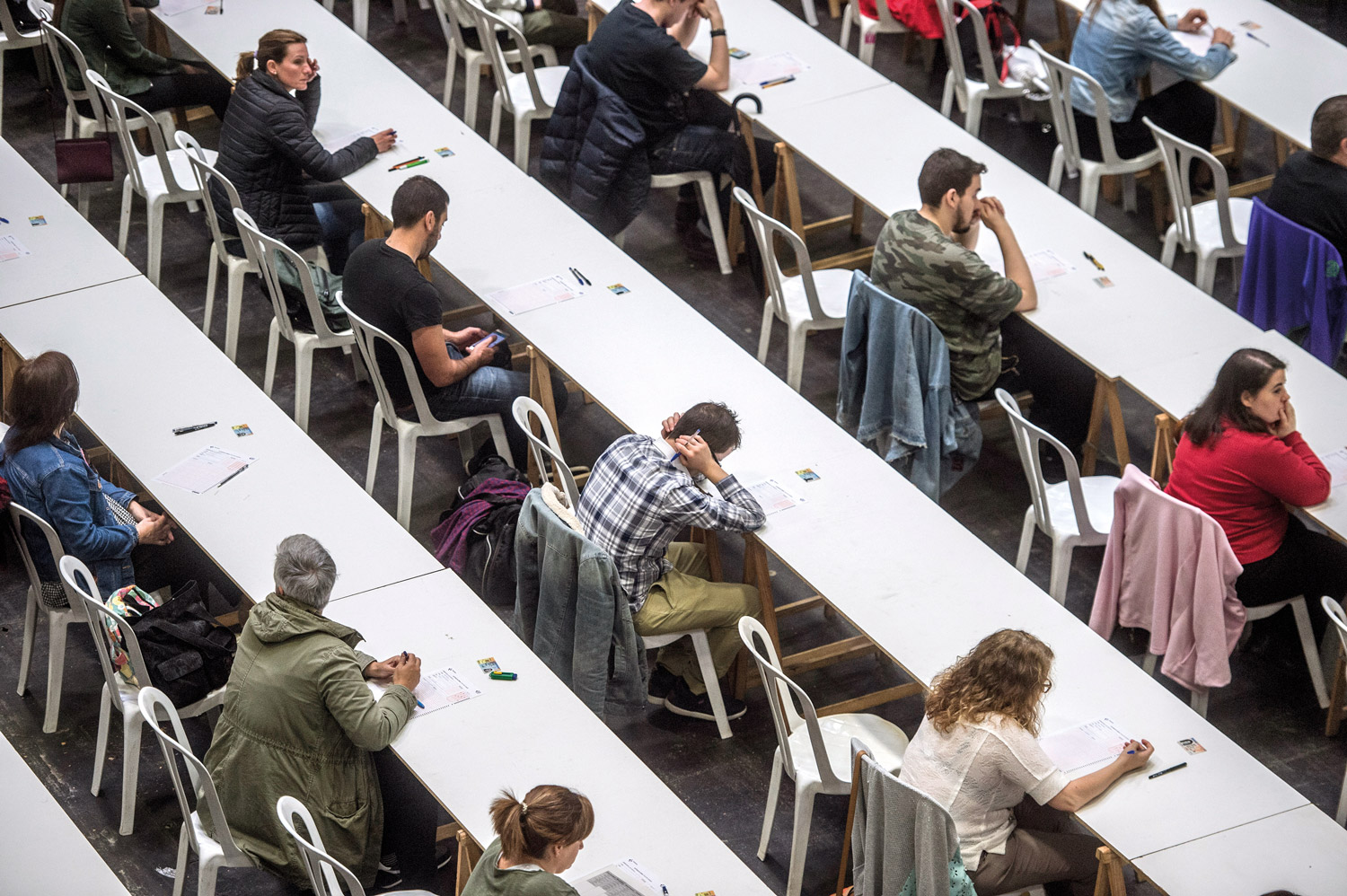The Council says that we must promote the universalization of knowledge of the Basque Country
- The Council of Euskalgintza has read 2023 and presented its conclusions on Friday. It outlines the advances, obstacles and setbacks of the sectoral linguistic policies in each territory, and in addition to analyzing what the 2023 has given in terms of the normalization of the Basque country and linguistic policies, presents the challenges and the road map of 2024. It calls for measures that seek the capacity of all citizens to understand and express themselves in Basque.

Secretary General Idurre Eskisabel has considered it essential that future language policies for the survival of the Basque Country produce a “leap” to meet the challenges, and has described as good news opening the door to the official status of the Basque Country in the European Union, although he has explained that the recognition of the official status is not an “automatic instrument to overcome minorities”. This has been argued by the Council representatives in Brussels, “asking Member States to commit themselves to linguistic equality”. At the same time, they denounce the search for official status in the EU and non-official status in Navarre and the Northern Basque Country.
Can't jump into language policies
It has also carried out an analysis of each territory and underlined that we are “far from making a leap in future language policies. In fact, the Action Plan for the Promotion of the Basque Country, which will establish the “strategic framework” of the Basque Government for the next 10 years, is being approved, and the Decree that will regulate the normalization of the Basque Country in the public sector has also entered its final line. He also points out some elements to be improved: administration, establishment of a period of euskaldunization, need to overcome the scheme of the indices of preceptivity...
In the case of Navarra, the Navarro Council of the Basque Country II. After the vote and adoption of the final proposal of the Strategic Plan, he stressed that the government had "stuck and blocked". In addition, he states that the Basque country will be regulated as a merit “only in certain positions in the mixed zone”, thus highlighting its “reduced impact”.
Education: losing opportunities
He notes that education is “one of the main instruments for the normalization and promotion of the Basque Country”, with special attention to the new Law of Education of Álava, Bizkaia and Gipuzkoa, adopted on 21 December. He says that "this will not be a law that takes a firm and decisive step towards ensuring the universalization of knowledge in future generations of the Basque Country."
In Navarre, the Department of Education says that it continues to “stop” the spread of the Basque Country, and sets as an example the opening of the new public center in the Pamplona neighborhood of Lezkairu without model D. In Ipar Euskal Herria, however, he stressed the impossibility of performing the exams in Euskera, but stressed that thanks to the mobilizations of teachers and students, “progress” has been made.
Judicial aggression and popular will
In 2023, Eskisabel denounced the “intensification of judgments against the normalization of the Basque Country”: To request the knowledge of the Basque Country to the personnel of the Public Administration, from the judgments they have questioned, to the partial repeal of the Municipal Law and its Development Decree, which provided legal support to the municipalities of the CAPV for their functioning in Basque. Far from being isolated sentences, the Council warned that it is part of a trend taken by the judiciary.
However, it has ensured that it has been possible to articulate a “common response” on the path of consensus, as is the case with the “successful” demonstration on 4 November. On the side of the demonstration, the Council stressed the responsibility for managing this consensus reached and presented the Protocol to articulate local responses.
The universalization of knowledge, a civic commitment
The Council considers that promoting the idea of universalization is at the heart of the new socio-political agreement that requires the normalization and revitalization of Euskera for the future.
Euskalgintzaren Kontseiluak antolatutako "Ongi etorri Euskararen Mundura" jardunaldiak izan dira Gasteizen ostegunean eta ostiralean. Egun bi bete-beteak, eta mahai gainean Euskararen normalizazio prozesuan euskal herritar berriak integratzeari buruzko praktikak... [+]












